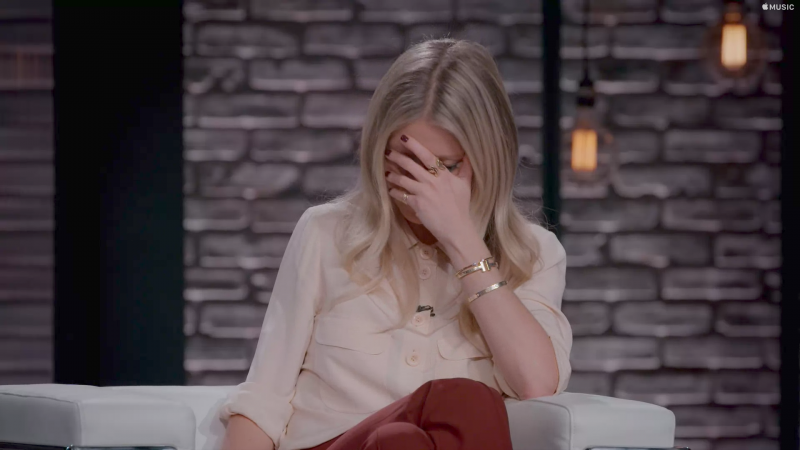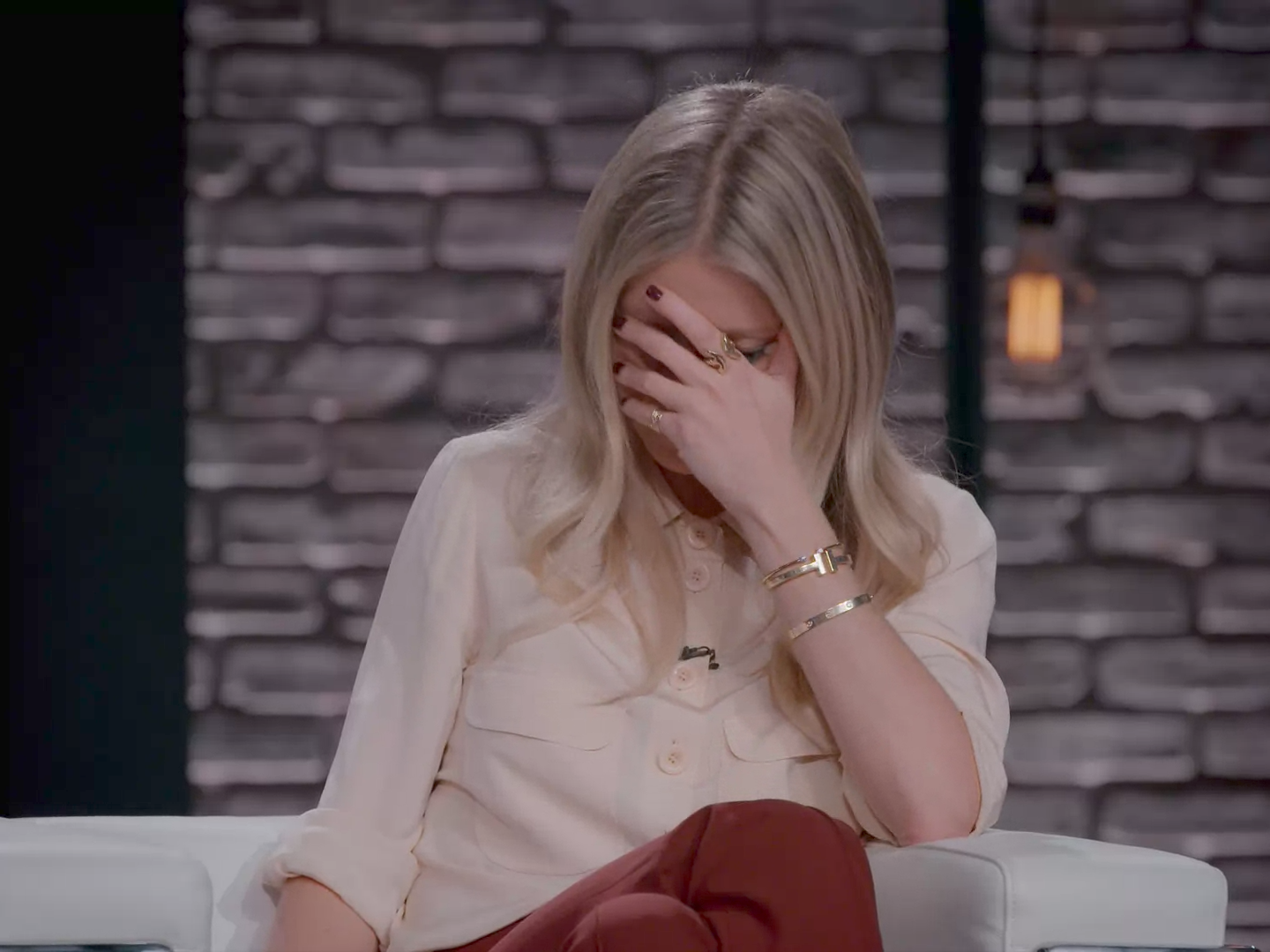The first episode of Apple’s new reality show, “Planet of the Apps,” has arrived – and it’s a total mess.
The show is a “Shark Tank”-style competition among app developers vying to gain a mentor who will turn their app into the next Facebook, along with a bag stuffed with venture capital money; In other words, the Silicon Valley dream.
This is the first original TV show made by Apple and it features celebrity judges, along with DJ-turned-host Zane Lowe.
Of course, making good television requires different muscles than building beautiful hardware. And Apple’s inexperience in this realm quickly shows up in a variety of clumsy, comical and at times cringe-worthy scenes throughout the 60-minute show.
Business Insider watched the first episode (new episodes will be released every Tuesday). Here’s the good, the bad and the ugly from Apple’s first foray into TV entertainment:
"Planet of the Apps" is hosted by Honest Company founder Jessica Alba, musician Will.i.am, Goop founder Gwyneth Paltrow, and VaynerMedia founder and CEO Gary Vaynerchuk — and therein lies one of the major problems with the show.
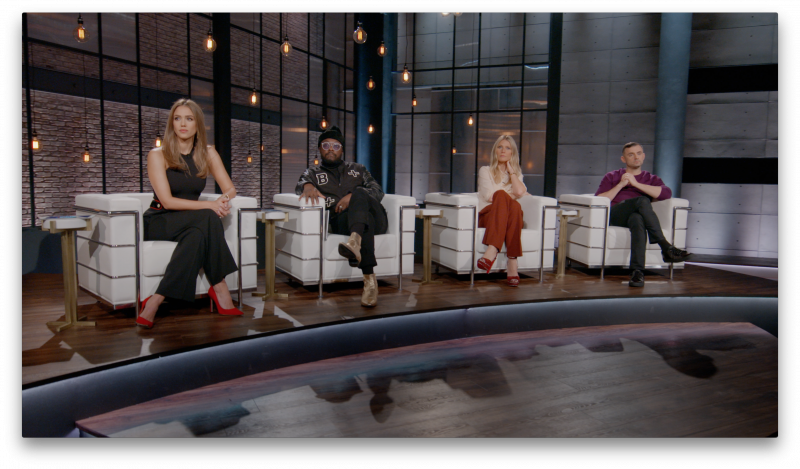
None of the hosts has ever developed an app. With the exception of Gwyneth Paltrow (whose company, Goop, built a travel app called G.Spotting), none of the hosts own companies, or are affiliated with, companies that build apps. None of the hosts even really work in tech at all, unless you count Will.i.am's Buttons headphones or Gary Vaynerchuk's early tech investments in Facebook and Twitter.
So, why are these four judging a show about making a hit app? That's the biggest mystery of "Planet of the Apps," and one that the judges themselves seem stumped by. At several points throughout the first episode, the judges bow out of mentoring a company because they have zero expertise in the field.
The format of "Planet of the Apps" isn't unlike "The Voice," in that each contestant or group of contestants has a set amount of time to pitch their product, then each judge says whether they're interested in mentoring the aspiring entrepreneur by hitting a "Yes" or "No" button on an iPad.

Oddly, the judges' decisions appear on a digital circle on the floor — red means "No" and green means "Yes." If the contestants get all reds, they can't continue pitching their app. If they get just one yes, they go stand in the middle of the circle and tell the judges more about their product.

Perhaps the strangest aspect of the show is that the contestants must stand on a moving escalator and pitch their app before reaching ground level. This appears to be a play on the classic "elevator pitch" cliché, in which an ambitious startup founder tries to sell his idea to an investor during a brief elevator ride. Elevators have closing doors that don't really translate well to TV though, so instead we have an escalator.
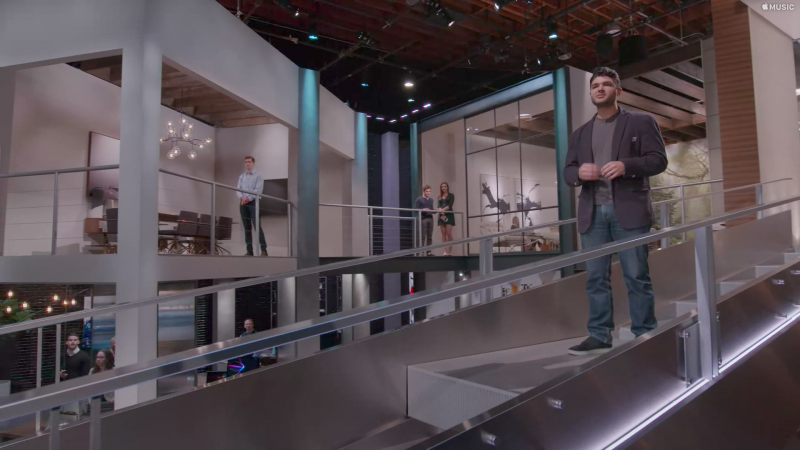
It's awkward to watch, and probably even more awkward (and disconcerting) for the contestants. No one seemed outwardly phased by their escalator ride, but as a viewer, it was hard to watch.
And it's another unecessary affectation that gives the show a forced, convoluted feel. Why not use a simple timer and buzzer to ensure the pitches stay concise? Why not have a digital scoreboard showing the judges decision instead of digitizing the floorboards?
Apple seemed hellbent on differentiating the show from "Shark Tank," and the results look over-complicated, confusing, and, frankly, a little amateurish.
In the first episode, we met three different sets of founders. First up was Andrew Kemendo, whose Pair app uses augmented reality to help you pick out furniture.

Kemendo got Jessica Alba's support, and she signed on to mentor him and help him prepare to meet with venture capitalists.

Next up were J. Peter Kazickas, Bradley Gifford, and James Ricciardi, who built a dating app called Twist that was meant to encourage users to meet in real life.

Gwyneth Paltrow initially said yes to Twist, which allowed us to hear more — and have the company torn apart by Alba and Will.i.am (Paltrow later changed her vote to a "no").

The app let you sign up to attend an event, then browse through all the single people who would also be attending. This pitch ended up being one of the few bright spots of the episode...
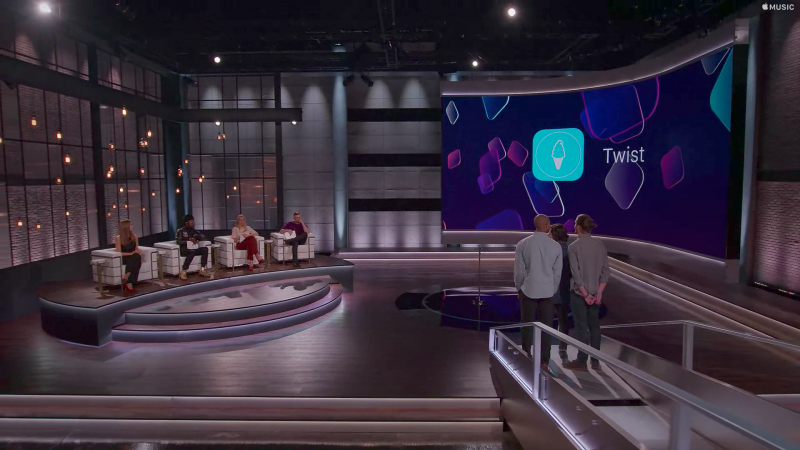
...but not because it was a great idea. The judges quickly pointed out a flaw that the founders seemingly hadn't considered even once: the app encouraged men to pick out attractive women and confront them in person. The app put women in the awkward position of having to be both hunted down by strange men, then having to reject them to their face.
The founders' confused and progressively heartbroken expressions as things went from bad to worse served as one of the few unintentionally humorous portions of the episode, along with Will.i.am calling the app's consequences "a sausage fest."
But Twist's presentation did allow Alba to shine as the most personable, down-to-earth and legitimately funny personality on "Planet of the Apps."

Alba described Twist as "dudes trying to holler" and immediately pointed out that it was clear none of the apps founders had consulted a single woman while building their service. She encouraged the founders to actually talk to a woman about their idea rather than creating an app for men to stalk women.
And her reaction when asked if she'd changed her mind about mentoring the team was priceless: "Still red," she said while laughing and miming a hard "no."
About 20 minutes in, we were finally treated to a company all three judges could agree on: Companion, an safety app that tracks your location and has someone keep an eye on you from afar.
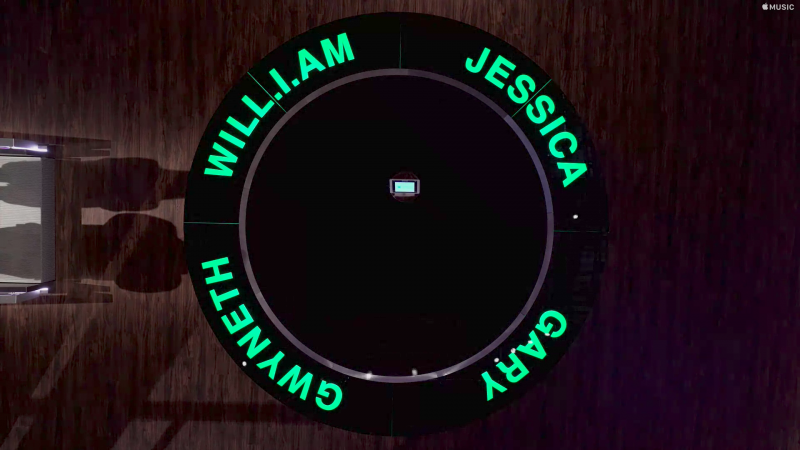
Companion was developed by Jake Wayne and Lexie Ernst and already had a strong user base before coming on the show. Vaynerchuk took them under his wing and mentored them for six weeks leading up to their pitch in front of investors.

Which leads us to Vaynerchuk himself, whose personality on the show is a bit tough to take. While he clearly has the most expertise and asked the toughest questions, Vaynerchuk is also the harshest judge.
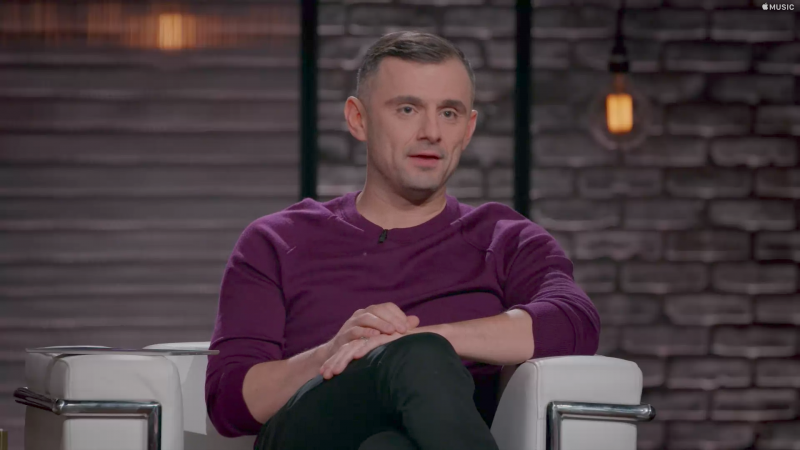
Vaynerchuk's character seems intended to be the enforcer, but he lacks the charm or empathy to balance the occasional harshness of his opinions. He may win us over in coming episodes, but the first 60 minutes were unpleasant.
To be fair, however, Will.i.am and Paltrow barely spoke in 60 minutes and either looked bored or perplexed, while Alba's reactions and critiques were all over the map.
But for all of Vaynerchuk's toughness, plus some clever editing, the first episode of "Planet of the Apps" lacked any real drama. A few arguments, some tears, or even just a sign that Paltrow and Will.i.am were still awake would have been a welcome respite from the crushing boredom.
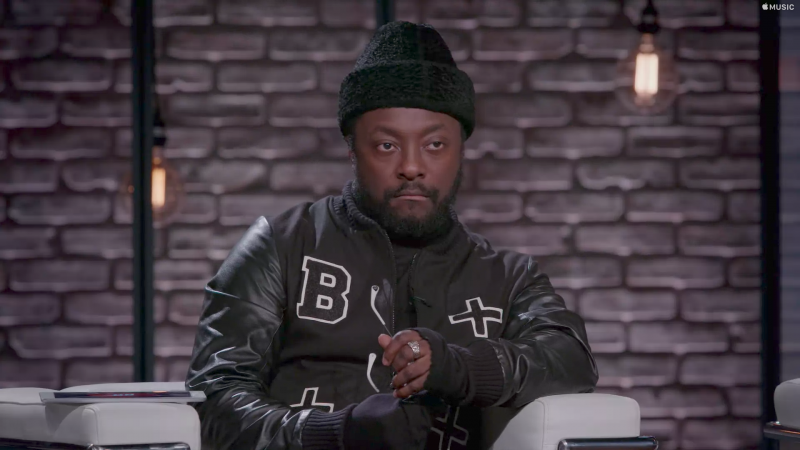
Eventually, it was time for the makers of the two surviving apps to pitch a real life Silicon Valley VC: Jeremy Liew, of Lightspeed Venture Partners.

The introduction of Liew and his partners Aaron Batalion, Alex Taussig, and Nicole Quinn lent some gravitas to the show. Their questions were pointed, their expertise in apps and platforms was more legitimate, and they clearly knew their way around a startup pitch session. The presence of Jeremy Liew - one of the first VCs to invest in Snapchat - made the show feel as if a grownup had finally arrived to right the ship.
Sadly, even the VCs couldn't save "Planet of the Apps." When discussing the pitch from Pair founder Andrew Kemendo, the investors quickly got bogged down in a discussion of the intricacies of esoteric augmented reality technology. What was likely a two-minute discussion felt like two hours, with even Kemendo and Liew seeming confused.
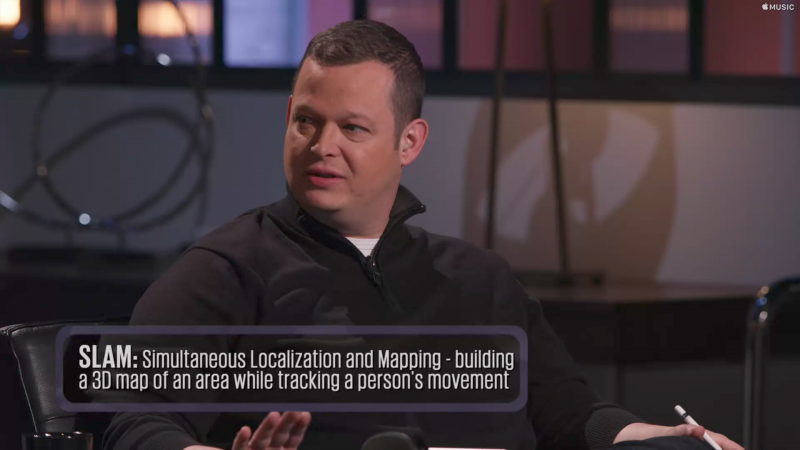
It was here that "Planet of the Apps" really dropped the ball: The show tried to take on high-level tech topics, but simultaneously cater to "regular people" by adding explainers to the bottom of the page.
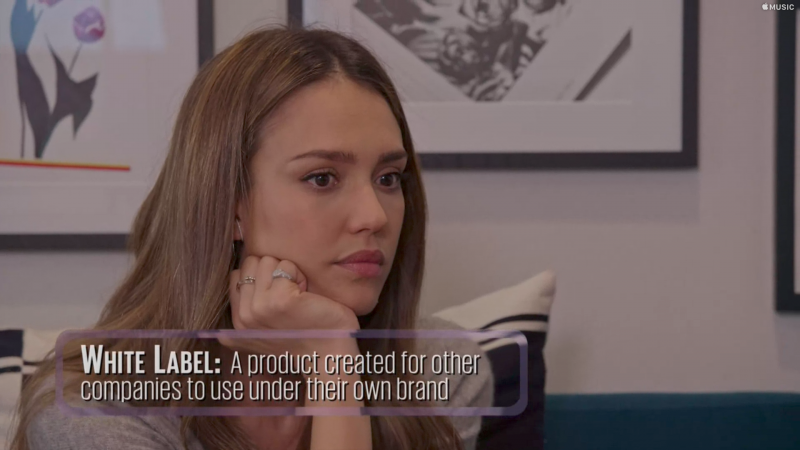
"Planet of the Apps" seems unsure whether it wants to be a serious show that can expound on the finer points of one of the hottest - and most complex - technologies of today, or whether it wants to attract average consumers who buy baby wipes from Honest Company or used to listen to the Black Eyed Peas.
As someone in the tech field, I felt both terribly confused about the mapping capabilities of augmented reality, while simultaneously feeling condescended to when the definition for "burn rate" popped up at the bottom of the screen.
"Planet of the Apps" tried to do everything at once, but somehow failed at doing anything well.
Thankfully, the episode ended on a happy note: Companion received $1 million in funding from Lightspeed.

The pure, uninhibited joy Wayne and Ernst clearly felt at getting an investment was sweet to watch. After 50 minutes, viewers were finally treated to real emotion and excitement by people who actually seemed to like apps. You could tell that the Companion founders enjoyed their experience on the show, even though no one else present really seemed to.
At the end of the day, "Planet of the Apps" simply isn't a very good show, and the real shame here is that they've already produced nine more episodes of it.
We'll just let Gwyneth Paltrow have the final word:
